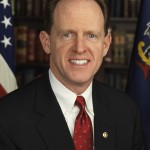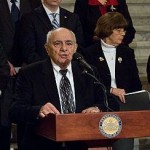Transportation Commission’s Final Report to be Delivered to Governor
Two weeks after the governor’s Transportation Funding Advisory Commission voted on its package of funding and modernization recommendations, the final report is about to be delivered to Governor Tom Corbett. Phased in over five years, the recommendations are designed to provide an annual $2.5-billion dollar shot in the arm for transportation funding in the Keystone State. Previous commissions have pegged Pennsylvania’s transportation funding crisis to be $3-billion dollars a year.
It’s important that Pennsylvania is taking its transportation woes into its own hands, according to Joshua Schank at the Washington DC-based Eno Transportation Foundation. Schank says states can’t rely on the federal Highway Trust Fund for help. “The primary reason is that it’s traditionally been funded through the federal gas tax, which is 18.4-cents per gallon and has not been increased since 1993.”
The Transportation Funding Advisory Commission never considered a hike in the state’s gas tax. Chairman and PennDOT Secretary Barry Schoch likens the gasoline tax to chasing one’s tail. “If you increase it, you know that fuel consumption is going to go down in the future, so you’d have to increase it substantially to make up for that difference,” Schoch said back in June.

The Transportation Funding Advisory Commission recommends indexing driver and vehicle fees to inflation.
One high-profile recommendation that will appear in the report is the removal of the state’s cap on the wholesale taxes paid by the oil companies. The Commission also recommends an increase in the vehicle and driver fees, which would index them to the rate of inflation. All together, the recommendations could result in PA drivers doling out an additional $132-dollars a year. However officials say those are conservative estimates, based on the entire impact of un-capping the Oil Franchise Tax being passed onto consumers. PennDOT spokesman Dennis Buterbaugh tells Radio PA that’s unlikely to happen.
Many in Harrisburg are anxiously awaiting Governor Tom Corbett’s reaction to the report. Corbett says tapping the 40-member commission was the first step in a “reasoned approach” to the transportation funding problem. “As I call it, ready, aim, fire; not ready, fire, aim,” Corbett said on the July edition of “Ask the Governor.” The report’s recommendations would require legislative action.


















